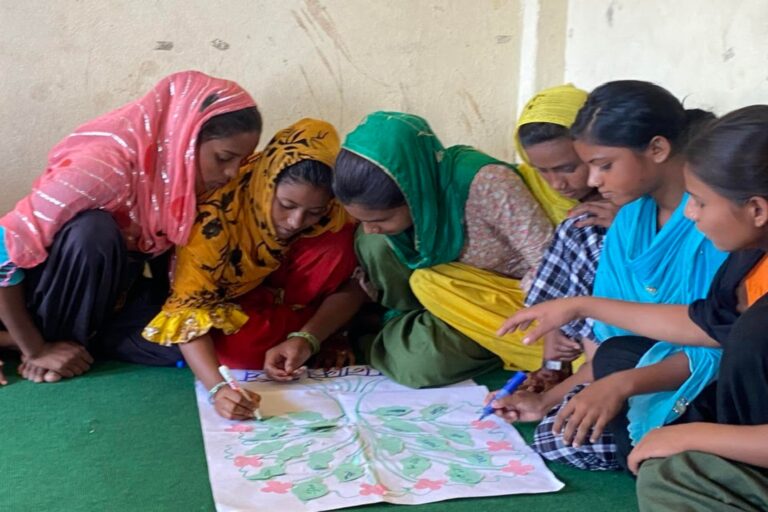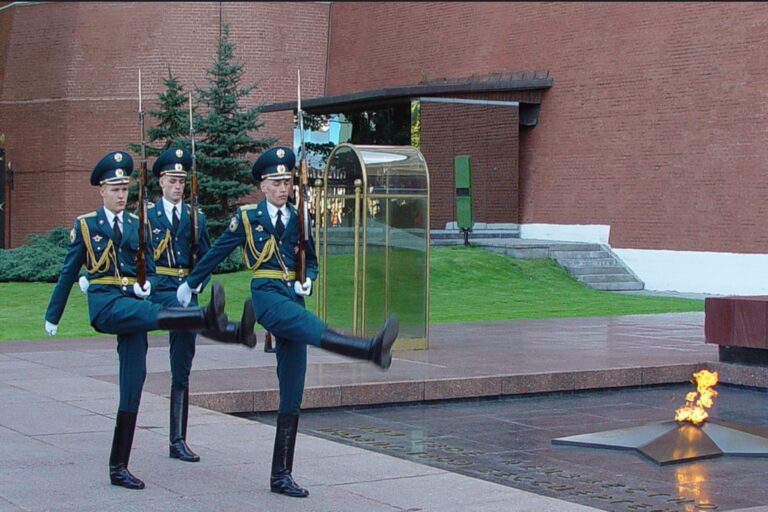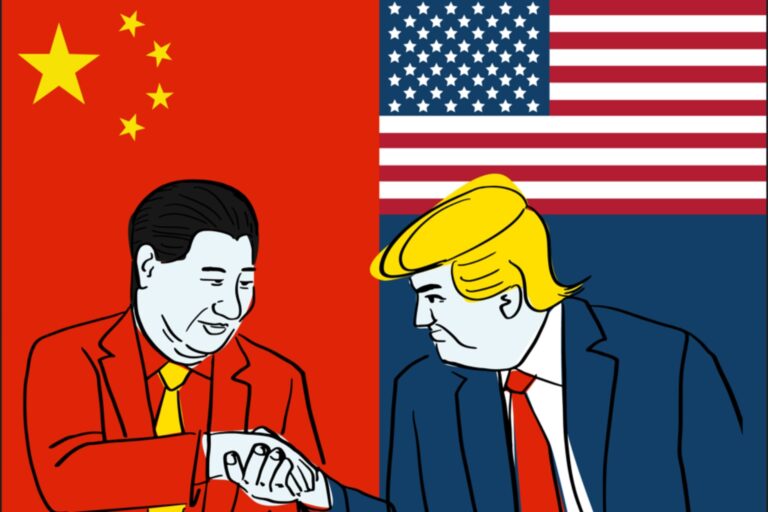This year’s slew of elections and other leadership selection processes will see new heads of state in many capitals around the world. Leadership matters—as Ralph Waldo Emerson put it, “there is properly no history, only biography….” Presidential elections have already been held in Taiwan and Russia this year, as have parliamentary elections in Greece and Iran. There are also leadership changes on the horizon in China and a presidential contest in the United States. In addition, elections are coming up in France, which means that four out of five of the UN P-5 (Permanent five members of the United Nations Security Council) will have been involved in a leadership transition process of some kind by the end of the year. Citizens will also head to the polls in Kenya, Mexico, Senegal, South Korea and Venezuela, among other countries where new national leaders may be chosen—including Arab Spring countries testing new national elections this year.
There’s plenty of history to show that the preferences and prejudices men and women bring with them to national leadership make a difference in the policy choices they make. In foreign policy, where national leaders play a central role in policy operations, not only how leaders see the world but what leaders think about each other can have a big impact on international relations, even in today’s world in which the ideal of raison de système is held high.
So what might we expect from these leadership transitions in the area of international politics? And, what about the impacts from the alchemy of personality changes that might result?
 To the first question, from races from Dakar to DC, it’s apparent that as national political battles are fought, foreign policy becomes, even more than is usually the case, handmaiden to domestic politics. In Senegal, Abdoulaye Wade’s continental jet-setting in pursuit of a United States of Africa is among the many criticisms laid at his door; in the United States it’s worth asking how the debate on how to deal with Iran might go if this weren’t an election year. The United States, meanwhile, faces unknowns as it navigates policy toward North Korea, not only following the death of Kim Jong-Il, but because South Korean President Lee Myung-bak, barred from reelection, will be replaced by a leader chosen in large part on the basis of North Korean policy. Venezuela’s Hugo Chavez continues to thumb his nose at the United States while he pursues the imaginations of voters with such schemes for Caracas’ hemispheric leadership as the Bolivarian Alliance on the one hand while choreographing a pas de deux for his country with Iran on the other. In France, Nicolas Sarkozy has made the most of his public’s desire to bolster France’s international standing by touting his foreign policy accomplishments, including France’s role in Libya. If reelected over his domestically-focused challenger, Francois Hollande, Sarkozy’s foreign policy activism is expected to continue as a counter to the challenges he faces contending with his country’s economic malaise.
To the first question, from races from Dakar to DC, it’s apparent that as national political battles are fought, foreign policy becomes, even more than is usually the case, handmaiden to domestic politics. In Senegal, Abdoulaye Wade’s continental jet-setting in pursuit of a United States of Africa is among the many criticisms laid at his door; in the United States it’s worth asking how the debate on how to deal with Iran might go if this weren’t an election year. The United States, meanwhile, faces unknowns as it navigates policy toward North Korea, not only following the death of Kim Jong-Il, but because South Korean President Lee Myung-bak, barred from reelection, will be replaced by a leader chosen in large part on the basis of North Korean policy. Venezuela’s Hugo Chavez continues to thumb his nose at the United States while he pursues the imaginations of voters with such schemes for Caracas’ hemispheric leadership as the Bolivarian Alliance on the one hand while choreographing a pas de deux for his country with Iran on the other. In France, Nicolas Sarkozy has made the most of his public’s desire to bolster France’s international standing by touting his foreign policy accomplishments, including France’s role in Libya. If reelected over his domestically-focused challenger, Francois Hollande, Sarkozy’s foreign policy activism is expected to continue as a counter to the challenges he faces contending with his country’s economic malaise.
Even where the matter of who rules or governs has been settled, leaders newly in power can be expected to use the world stage to consolidate their authority at home. Facing a challenging domestic economic, social and political agenda, Russian president Vladimir Putin has made clear that the threat to the success of his goal of restoring Russian power he sees from the West will be a favorite missile in his arsenal. In China, as the unfolding drama involving former Chongqing major Bo Xilai suggests, China’s leadership transition may only appear pre-ordained, veneer on the contentious reality of inner-Party politics. After Xi Jinping takes the helm next fall, he may find it necessary to rally patriotic support around perceived slights to China’s international stature or threats to its interests as he tries to move a mountain of domestic challenges while preserving the image of a unified Chinese leadership.
To the second question, some critics have commented that Obama has failed to connect personally with many world leaders. Certainly, the current American president has shown no sign that he has a sense of Putin’s soul, nor has he displayed much if any chemistry with his European counterparts. If Obama fails in his reelection bid, his likely successor, Mitt Romney, may not do much better. His description of Putin as a “dangerous character” is an unpromising start to a relationship. In China, Romney sees a “prosperous tyranny,” though he has punctuated otherwise harsh criticism of the Obama administration’s China policy with favorable comments about China’s pro-business environment, suggesting at least one potential area for relationship-building between Xi and him.
In Europe, Sarkozy and Merkel have formed an awkward united front as they’ve stood uneasily close for the cameras in their push to see the new European Union treaty ratified. Indeed, Merkel rejected Hollande’s efforts to get acquainted, suggesting trouble ahead if Hollande is elected later this spring. Putin and Chavez on the other hand have talked of the “confirmed friendship” anchoring their frequently shared international positions. Putin and Xi have interacted frequently and apparently cordially as prime minister and vice-premier respectively, while Xi and Chavez also build on an existing and outwardly mutually affable relationship. In Senegal, opposition front runner, Macky Sall, a one-time Wade protegé, promises considerable continuity though without the superannuation. In South Korea, an end to a ban on the use of social networking for campaigning may lead to a surprising election outcome, but if the “queen of elections,” Park Geun-hye wins, her platform of pursuing “trustpolitik” with Pyongyang and shallow ties to the US may suggest renewed strains in the US-South Korean relationship.
It’s hard to make predictions, especially about the future. Biography is of course history and how it will shape the foreign policy that emerges from this year of leadership transitions will surely make interesting reading someday. In the meantime, it might be wise to brace ourselves.
Written by Professor Carla Freeman
Carla Freeman is Executive Director of the SAIS Foreign Policy Institute and Associate Research Professor of China Studies In 2010 she served as American co-Director of the Hopkins-Nanjing Center in Nanjing, China. She received her BA in History at Yale University and her MA and Ph.D. at Johns Hopkins University School of Advanced International Studies (SAIS). She has taught at SAIS since 2007. Her courses focus on the international relations of Asia and on China’s environmental governance and sustainable development. She is interested in the links between domestic and foreign policy, and on the political and environmental impact of development. She has written most recently on China’s foreign policy toward its territorial neighbors in the context of its security concerns, China’s impact on Africa, and China’s environmental policies. Her professional work has also included consulting, political risk analysis, and work on civil society and sustainable development.



